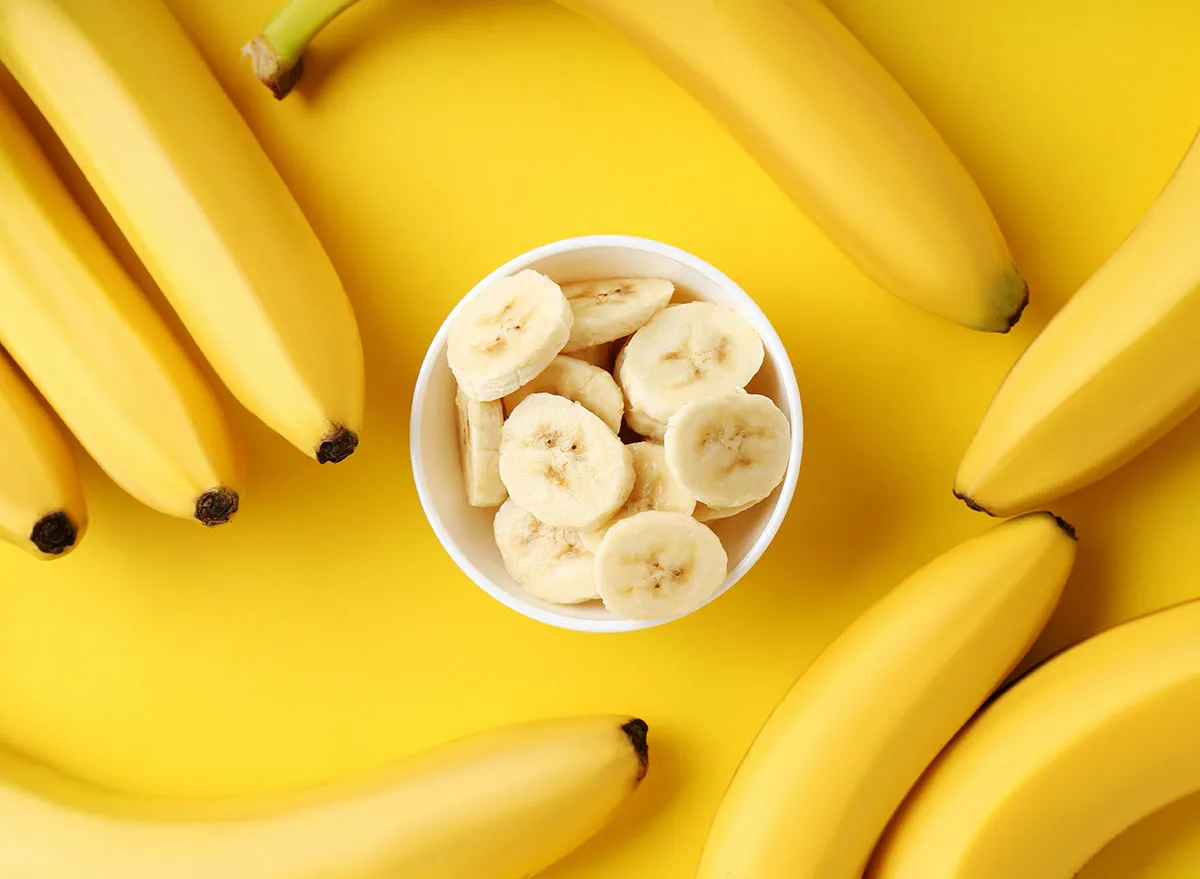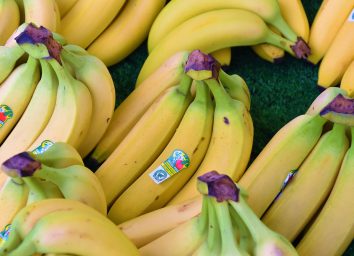One Major Side Effect of Not Eating Bananas, Says Science

It’s hard to imagine a more versatile fruit than a banana—they’re great on top of yogurt or cereal, can be baked into a delicious bread, and are often tossed into a smoothie for an added boost of sweetness and creaminess.
According to the International Trade Centre, which is the joint agency of the World Trade Organization and the United Nations, bananas are actually the world’s undisputed favorite fruit. In 2017, an estimated 21.54 billion tons of bananas were traded across the world, worth $14.45 billion. This accounts for more than 14% of all fruits traded.
However, just because bananas are popular around the globe, doesn’t mean everyone is eating them or eating enough of them. Some people aren’t a fan of the texture, while others just don’t love how bananas taste. But if bananas aren’t a part of your regular diet, you might be depriving your body of some pretty powerful nutrients.
That’s because, simply put, a banana a day keeps your gut problems at bay. In fact, numerous studies have shown that bananas are gut health MVPs in a variety of different ways. For example, a 2011 study that appeared in the journal Anaerobe found that women who ate a banana daily reportedly experienced reduced gastrointestinal bloating. (Related: 25 Tips on How To Reduce Bloating In Less Than 24 Hours.)
And that’s not all. Bananas can also keep your microbiome in tip-top shape. According to a 2017 study review in Nutrition Bulletin, underripe bananas contain resistant starch, which works to increase the production of short-chain fatty acids in the gut microbiome—which are linked to various health benefits.
Harvard researchers support the Nutrition Bulletin idea that the resistant starch in bananas is part of what makes them gut health superstars. This is particularly true of bananas that aren’t ripe. According to research, the resistant starch in green bananas actually “resists” digestion in the small intestine. Instead, it is absorbed slowly and doesn’t lead to harmful blood sugar spikes, and then acts as food for the growth of beneficial microbes in the digestive tract. Microbes then break down and ferment the starch as it heads to the large intestine, which create short-chain fatty acids that may play a role in the prevention of chronic diseases, including digestive disorders.
Additionally, a substance called pectin, which decreases as a banana ripens, may have its own positive effects on your gut. According to a test-tube study that was published in the journal Anticancer Research, pectin may help protect against colon cancer.
Lastly, per Harvard experts, bananas can help replete electrolytes, such as potassium, that are lost with excessive diarrhea, vomiting, and even exercise. This is why they are often fed to people experiencing diarrhea, or those who require a bland, easy-to-digest diet after stomach ailments.
If you’re not a fan of bananas, you can still support gut health. Just take a look at these Best Supplements for Gut Health, According to Experts!
For more healthy eating news, make sure to sign up for our newsletter!
Read this next:
- The #1 Unhealthiest Way to Eat Bananas, According to a Dietitian
- 9 Ways Bananas Can Help You Lose Weight, Say Dietitians
- What Happens To Your Body When You Eat a Banana Every Day








